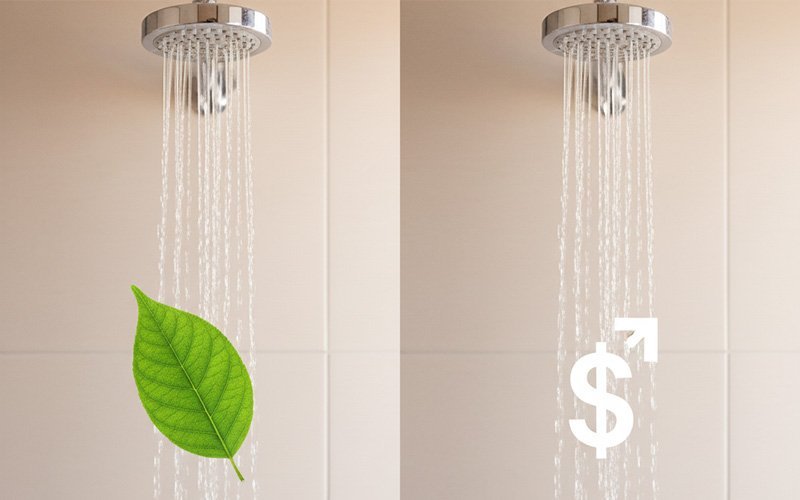Table of Content
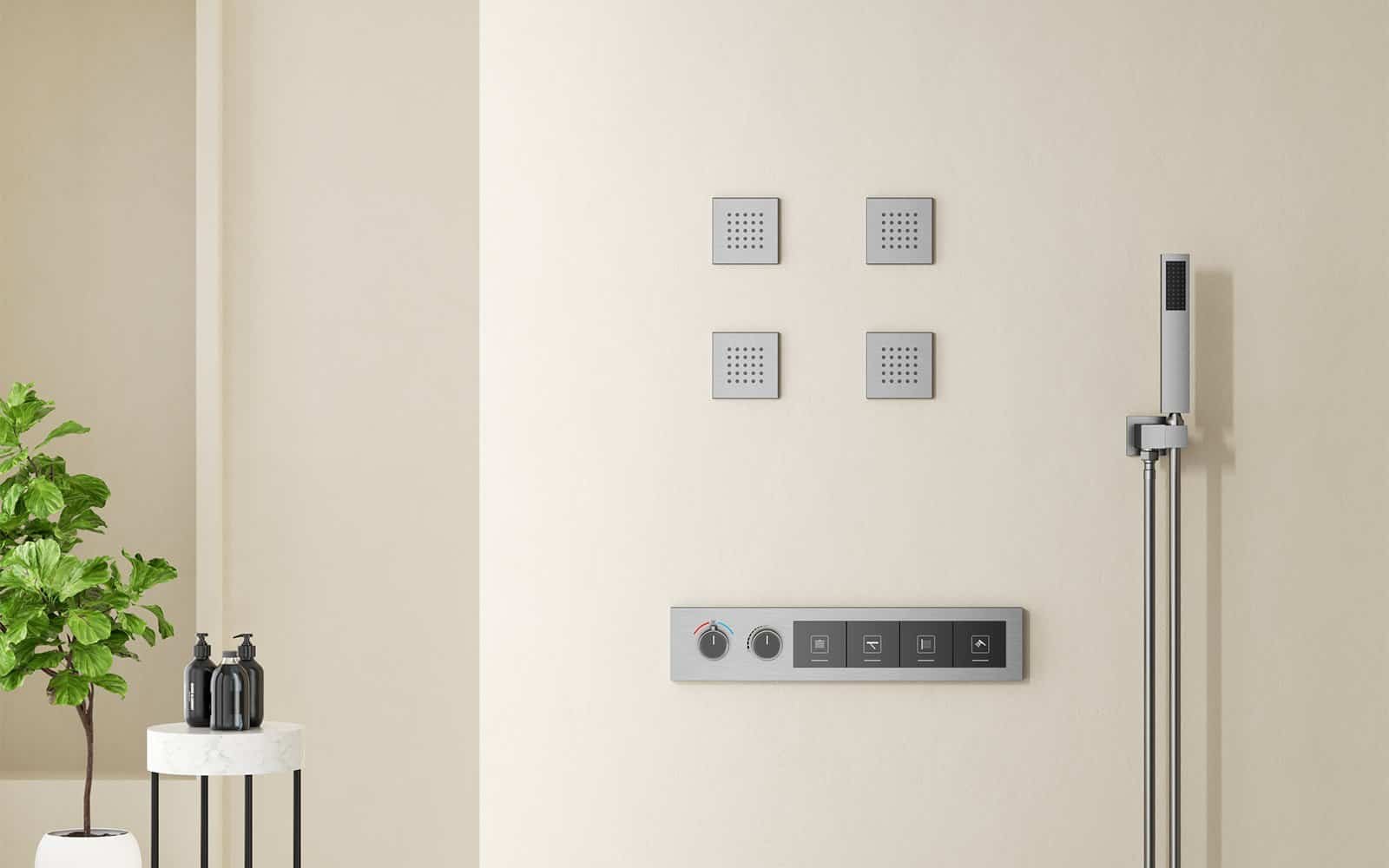
A shower is more than just a space for personal hygiene – it’s an essential part of your daily routine. Whether you’re relaxing or rinsing off after a workout, it’s important to maintain your shower system. Regular maintenance can help prevent common issues, save water, and keep your shower system functioning properly.
In this post, we’ll share tips to help you maintain your shower’s condition. From cleaning the showerhead to checking for leaks, here’s how to keep your shower system performing well.
Regularly Clean Your Showerhead
A clogged or dirty showerhead can decrease water pressure and affect the flow of water. Mineral buildup from hard water, soap scum, and mold can all accumulate over time. To maintain your showerhead’s performance:
- Deep Clean the Showerhead: If water flow drops, tie a bag of white vinegar around the showerhead. Let it soak for a few hours (or overnight) to dissolve the mineral buildup. Afterward, scrub the nozzles with an old toothbrush to remove any remaining residue.
- Replace or Clean Filters: Some filters in showerheads need periodic replacement. Check your manufacturer’s instructions for guidance on replacement schedules.
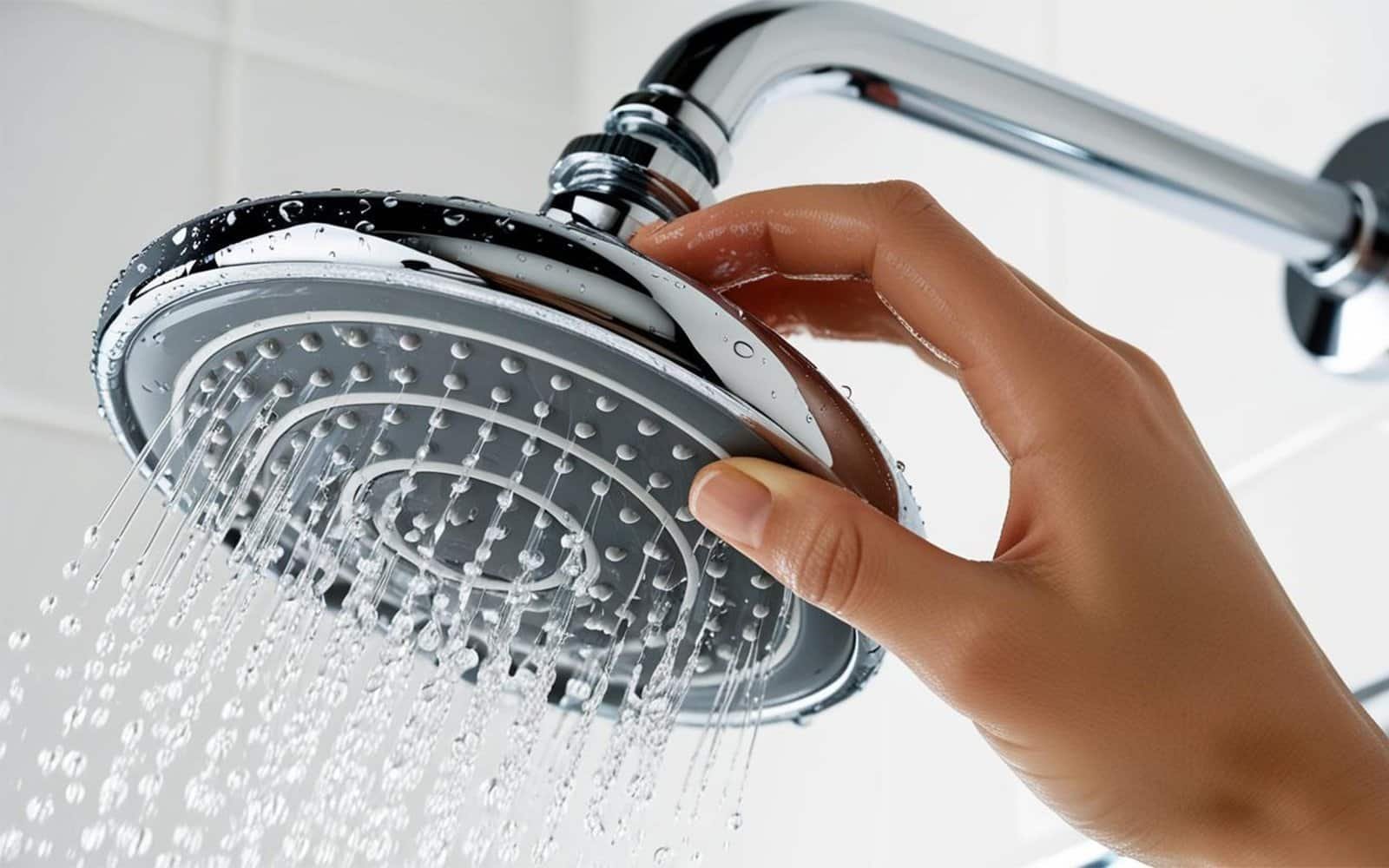
Check for Leaks Regularly
Water leaks are one of the most common issues in shower systems. A small leak can waste water, increase utility bills, and damage your shower.
- Inspect the Shower Valve and Faucet Handles: Regularly inspect the faucet handles and shower valve for leaks. If you notice dripping, worn-out seals or washers may need replacement.
- Examine Grout and Caulk: Leaking water can also stem from cracked grout or caulking around the edges of your shower. Inspect the grout lines for cracks or missing pieces. Apply new grout and caulk as needed to maintain a waterproof seal.
Maintain the Shower Door or Curtain
People often neglect to maintain shower doors and curtains, which keep water inside the shower.
- Clean Glass Shower Doors: Soap scum, hard water deposits, and mildew can build up on glass shower doors, affecting their look and function. Use a glass cleaner or a mixture of vinegar and water to wipe down the glass after every few showers. For more stubborn spots, try a specialized hard water stain remover.
- Check for Door Seals and Tracks: Inspect the seals around the door for any signs of wear. Replace cracked or detached seals to prevent water leakage. Additionally, ensure the tracks are free of soap scum and debris, as these can cause the door to become stuck or difficult to open.
- Shower Curtain Maintenance: If you use a shower curtain, wash it regularly to prevent mold and mildew buildup. Many shower curtains can be machine washed, but be sure to check the care instructions. If you notice any tears or holes, replace the curtain immediately.
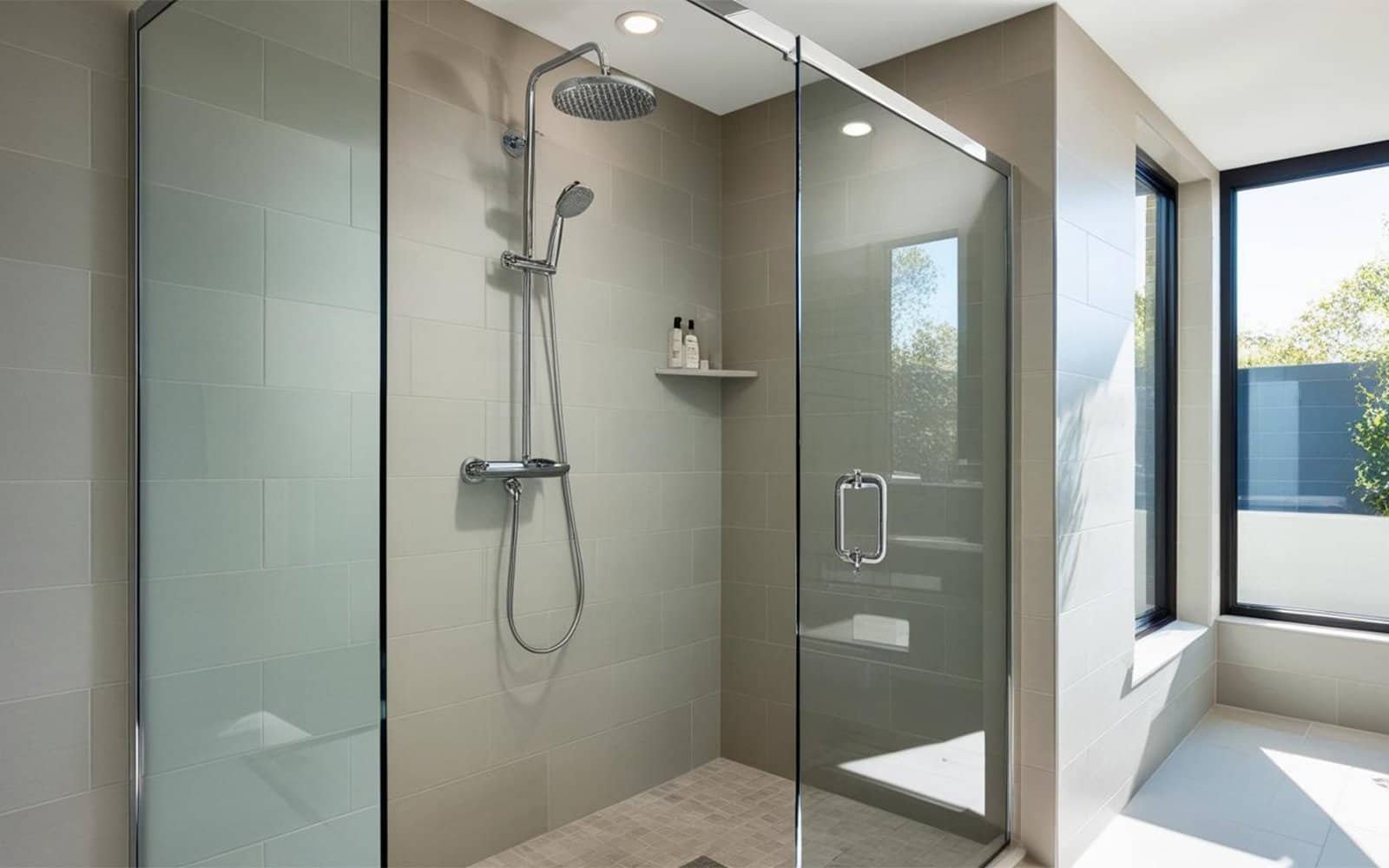
Descale Your Shower System
Hard water can cause mineral buildup in your shower system, affecting the showerhead and faucet handles. Over time, this can damage pipes, reduce water pressure, and even lead to clogs.
- Descale Faucets and Showerheads»: Use a descaling solution specifically designed for shower systems to prevent mineral buildup. Follow the manufacturer’s instructions and perform maintenance every three to six months, based on water hardness.
- Install a Water Softener: If your area has particularly hard water, consider installing a whole-house water softener. A water softener reduces minerals in your water, helping protect your shower system and plumbing fixtures.
Lubricate Moving Parts
Shower systems often include moving parts like valves, handles, and diverters that can become stiff or prone to wear over time. Regular lubrication ensures smooth operation and prevents damage.
- Apply Silicone Lubricant: Apply a water-based silicone lubricant to the shower valve stem, faucet handles, and diverter controls. Apply it to moving parts to prevent them from seizing up or becoming difficult to operate.
Inspect the Shower Drain for Blockages
A clogged shower drain is not only inconvenient but can lead to flooding and water damage. Hair, soap scum, and mineral deposits are common culprits for slow drainage. Here’s how to maintain your shower drain:
- Remove Hair and Debris: Install a drain cover or hair catcher to prevent hair and debris from clogging the drain. Check and clean the cover regularly to ensure water flows freely.
- Use a Drain Cleaner or Natural Solutions: Once a month, pour baking soda and vinegar down the drain, then rinse with hot water. This helps to clear any build-up of soap scum or other debris. If you experience slow drainage, use a non-toxic enzymatic drain cleaner to remove more stubborn clogs.
Check and Maintain Shower Pump (If Applicable)
For homes with a shower pump, regular maintenance is necessary to ensure it works efficiently.
- Listen for Unusual Noises: If your shower pump has issues, check the filter, clean the impeller, or replace seals. You may also need to inspect the pump’s electrical connections and test the system for leaks.
- Service the Pump Regularly: Like any other mechanical system, your shower pump benefits from periodic servicing. Follow the manufacturer’s recommended maintenance schedule to keep your pump running smoothly.
Control the Temperature to Protect the System
Shower systems are built to handle a certain temperature range. Consistently using water that’s too hot or too cold can put unnecessary strain on the plumbing components.
- Adjust Temperature Gradually: Avoid running your shower at extreme temperatures for long periods. If possible, set your water heater to a temperature between 120-130°F (49-54°C) for optimal performance and safety.
- Inspect Water Heater Regularly: Your water heater plays a crucial role in your shower system’s performance. Have it checked periodically to ensure it’s operating efficiently. Sediment buildup in the tank can reduce performance and potentially damage the system.
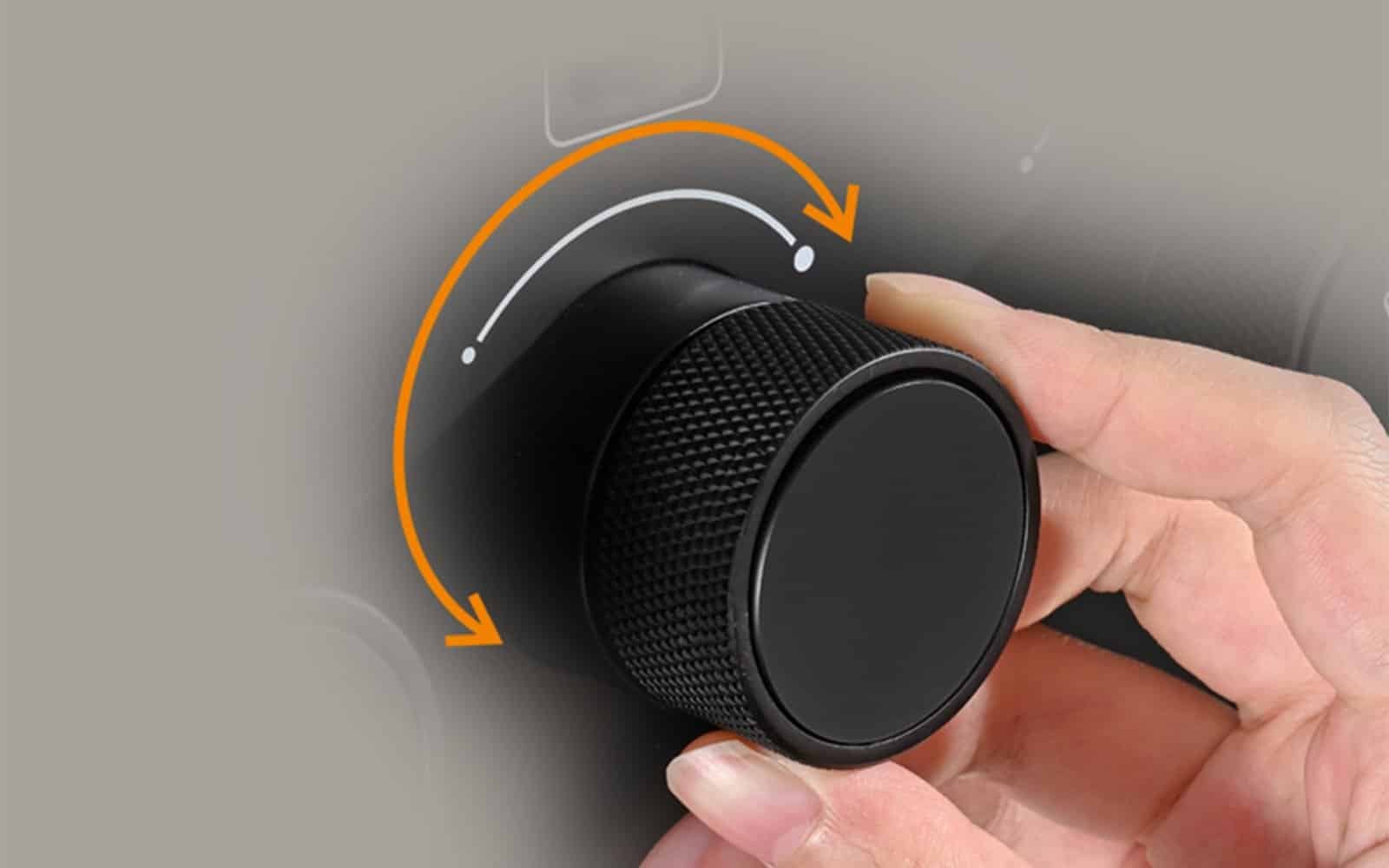
Prevent Mold and Mildew Growth
The humid shower environment can promote mold and mildew, causing stains and odors.
- Ventilate Properly: Always turn on the bathroom exhaust fan while showering to reduce moisture levels. Consider installing a dehumidifier in particularly damp bathrooms.
- Wipe Down Surfaces: After showering, wipe the walls, tiles, and fixtures with a microfiber towel to remove moisture. This simple step can significantly reduce mold and mildew growth.
Why Shower Maintenance is Important
Regular shower maintenance is essential for the longevity, efficiency, and safety of your system. Whether a basic bathtub-shower combo or a luxury rainfall shower», maintenance benefits your home and wallet. Here are some of the key reasons why shower maintenance is important:
- Prevents Expensive Repairs: Regular maintenance prevents costly issues like water damage, mold, and plumbing repairs by addressing leaks and clogs early.
- Maintains Water Efficiency: Cleaning showerheads, faucets, and pipes ensures optimal water flow, saving water and reducing utility bills.
- Improves Hygiene and Health: A clean shower system helps reduce the buildup of mold, mildew, and bacteria, which promotes a more hygienic environment.
- Contributes to the Longevity of Your Shower: Regular care, including part replacement and cleaning, prevents rust and wear, keeping your shower functional and visually appealing.
- Contributes to Consistent Operation: Proper maintenance of components like temperature controls can contribute to a more predictable and consistent shower experience.
- Enhances Showering Experience: A well-maintained shower system provides consistent pressure, cleanliness, and comfort, making each shower enjoyable.
Conclusion
Shower maintenance goes beyond cleanliness—it’s about protecting your home and maintaining the efficiency of your fixtures. By making upkeep a regular part of your routine, you can contribute to reliable use from your shower system.
FAQs
Related Posts



